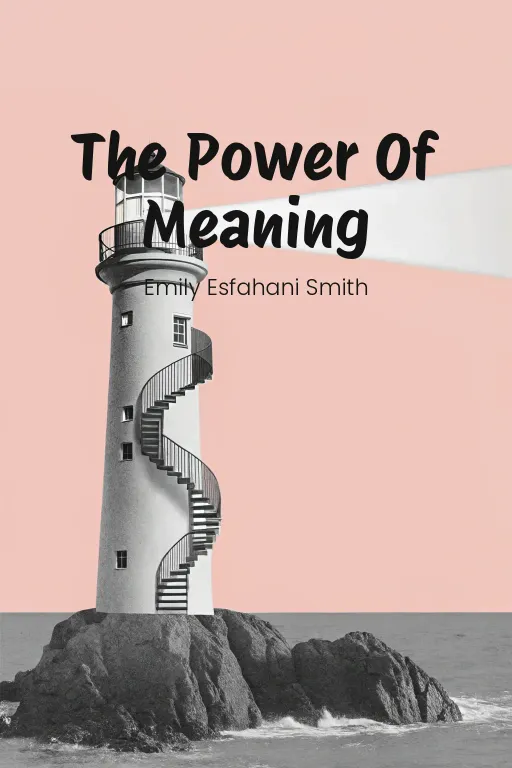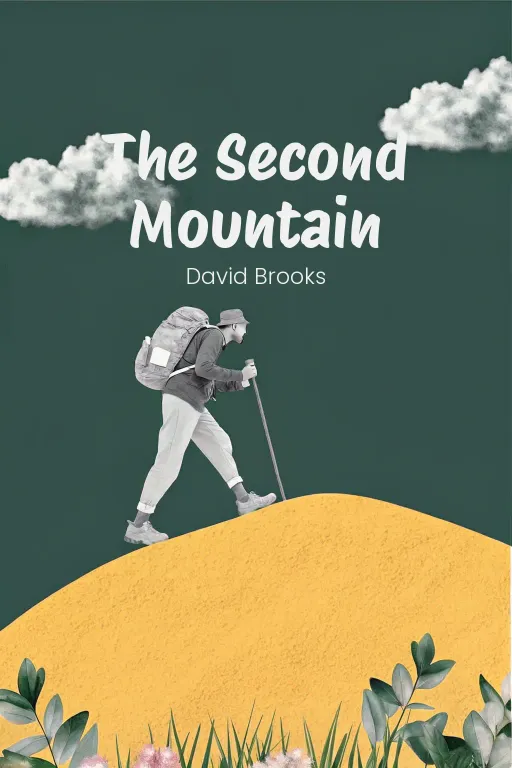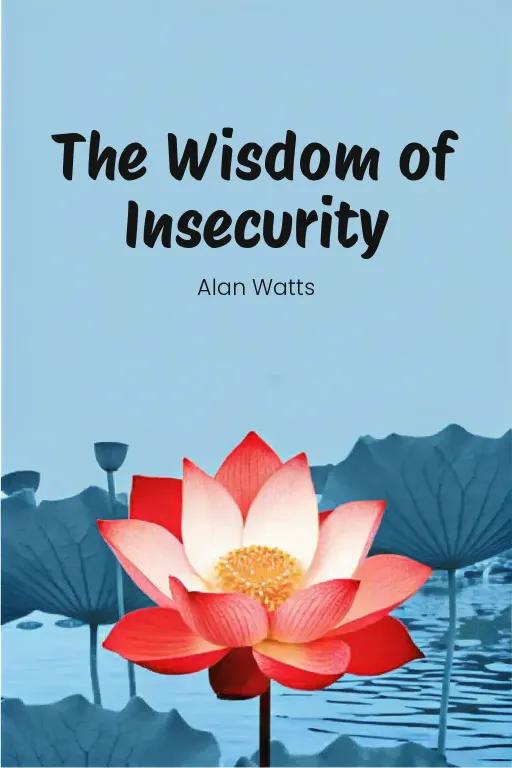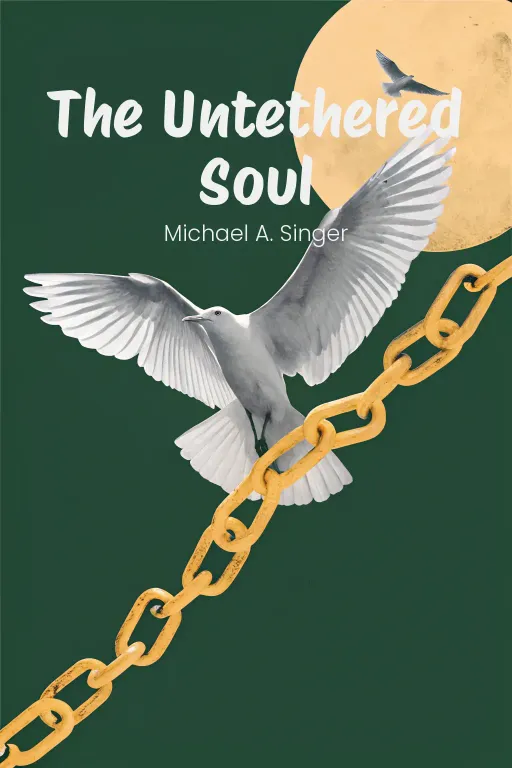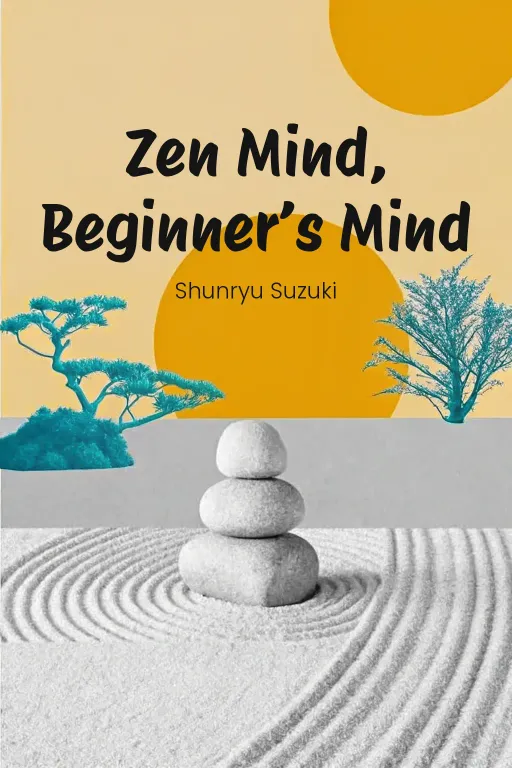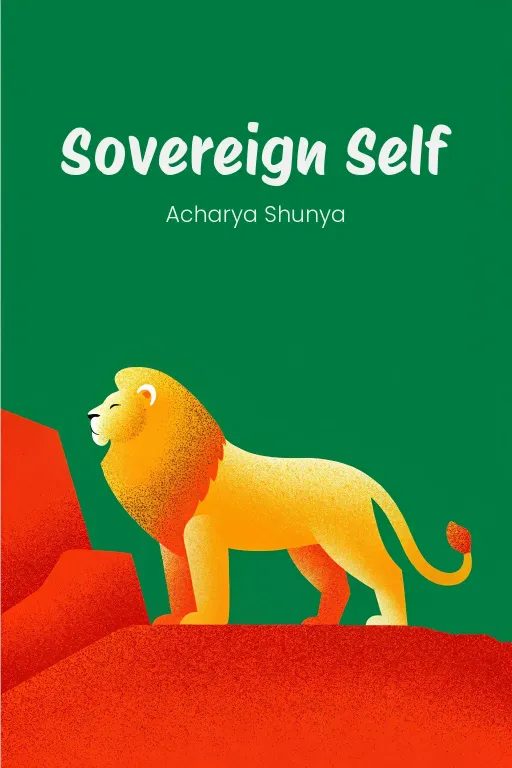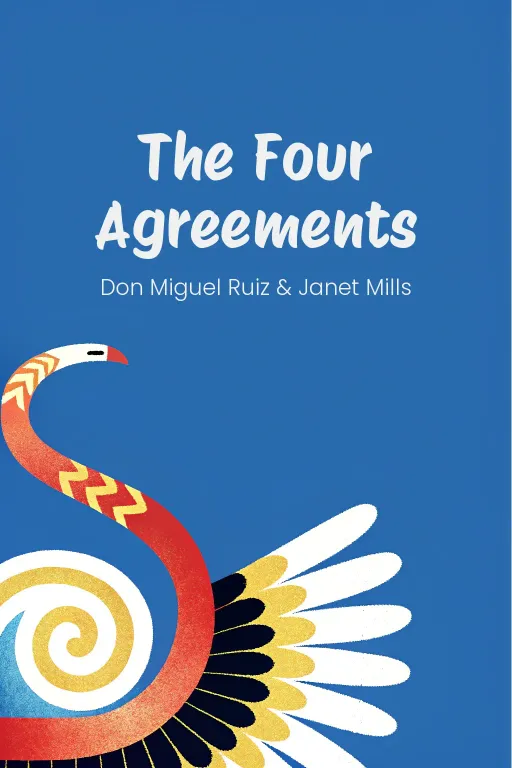
Evict Your Inner Roommate: Find Real Freedom
Podcast by The Mindful Minute with Autumn and Rachel
The Journey Beyond Yourself
Introduction
Part 1
Autumn: Hey everyone, and welcome back! Today, we're diving deep into The Untethered Soul by Michael Singer. Honestly, this book has the potential to completely shift your perspective, it’s a game changer. Rachel: “Game changer,” huh? Okay, Autumn, ambitious start. Are we talking, like, I finally stop replaying that embarrassing moment from 2022 in my head kind of change, or, I achieve total zen before my morning coffee? Autumn: I'm saying both, Rachel! Singer essentially guides us to understand who we fundamentally are, beyond all the mental clutter. He gives us the tools to quiet that ceaseless inner monologue, this “inner roommate” as he calls it, and guides us toward real spiritual freedom. Rachel: “Inner roommate?” Well, if mine's this noisy, I'm slapping them with an eviction notice ASAP. Autumn: Precisely! We're going to unpack that. We’ll explore three key concepts from the book. First, Singer helps us demystify this question of identity - and no, Rachel, it’s not your thoughts. Second, we're going to unpack the flow of inner energy and how these emotional roadblocks might keep us stuck. Rachel: So, it's like a blocked drain, but for your soul? Autumn: Exactly! And lastly, we'll look at how to surpass our limitations and start experiencing true spiritual freedom. Think about peeling back layers, like an onion, and discovering that sense of deep peace within. Rachel: Ah, onions. I foresee some tear-jerking moments as we unpack all this. Autumn: Perhaps, but those tears will lead to clarity. Okay, let's get started!
The Nature of the Self and Inner Dialogue
Part 2
Autumn: Okay, Rachel, let's jump into Singer's central question from The Untethered Soul: "Who am I?" Seems easy, right? But it's actually the foundation of everything. He wants us to distinguish between what we think we are—our thoughts, feelings, experiences—and who we actually are, which is that quiet observer within. Rachel: Wait, so you're saying we aren't our thoughts? Not even the thought, "Do I have enough milk for coffee?" Because that thought honestly feels pretty central to my being sometimes. Autumn: Nope, not even that one. Singer would argue that you are the awareness that's watching yourself worry about the milk! He talks about this "inner roommate," you know, that constant, sometimes annoying voice in your head. All that chatter—regrets, fears, plans…that's not you. It's just a voice, and you're the one hearing it. Rachel: So are we just passive observers then, like watching a movie where this "roommate" is constantly providing unwanted commentary? Autumn: In a way, yes. Singer's point is that we've become so identified with this inner voice that we mistake it for our true selves. He wants us to step back, observe this voice, detach from it. When you do that, you might even realize how ridiculous some of it is. Rachel: “Ridiculous” sounds about right. Remember Singer's example of trying to sleep before a big day: "I can't rest…I need to sleep!" The roommate warns you to sleep but stresses you out so much that you can't fall asleep. Autumn: Exactly! It’s totally counterproductive! Singer asks you to imagine having an actual roommate who just wanders around narrating everything. "You're going to mess up that presentation," or "They didn't text you back, they must hate you!" Would you even listen to someone like that? Rachel: I'd probably kick them out, or at least recommend therapy. Which, now that I think about it, might be how I deal with my inner roommate. Autumn: Exactly. When you realize this mental chatter is just a noisy, irrational companion, you start to take it less seriously. You realize, "Hey, I don't have to engage with these thoughts." Rachel: Okay, Autumn, I hear you. Choosing not to engage sounds nice, but isn't just tuning out your thoughts a way of avoiding reality? Autumn: Good point! Singer's not suggesting you ignore your thoughts completely. It's about observing them, not suppressing them. Let them pass without getting attached. He uses the theater analogy: Imagine your thoughts as actors on a stage. You're not one of the actors—you're the audience, just watching. Rachel: And what if I don't like the show? Booing my thoughts off the stage doesn't sound very Zen. Autumn: <Laughs> It's not about liking or disliking. It's about being curious, about observing them without judgment. So, if your mind says, "I'm going to screw up this meeting," don't argue or push it away. Just notice it: "Huh. An anxious thought." And here’s the kicker: It's not you saying this. It's just your inner roommate rambling on. Rachel: So instead of arguing back, you just leave the door open for your mental roommate to keep yammering until they're exhausted? Autumn: Almost. What you're really doing is creating emotional distance. Instead of getting swept up in every worry or fear, you step back and allow the thoughts to rise and fall on their own, like waves. Rachel: Speaking of waves – can we drown this metaphorical roommate? Or at least hit the mute button? Does Singer have any tips for dealing with especially annoying inner dialogue? Autumn: Absolutely! He encourages humor and curiosity, again, by using the Inner Roommate analogy. For instance, if your inner voice says, "Everyone's waiting for you to fail," imagine them as a cartoon character screaming nonsense in the corner. Suddenly it sounds ridiculous. Rachel: Okay, but how does picturing a cartoon roommate actually help when the anxiety feels totally real? Like, say I’m late for an important meeting—that thought isn’t just in my head, it’s in reality. Autumn: That's a great real-world example. Singer isn't denying real situations. He's saying your reaction to those situations—the voice saying, "You're going to get fired!"—is unnecessary mental noise. Separating from that reaction helps you handle the situation without the emotional spiral. Rachel: So instead of panicking, you think: "Look at my inner roommate freaking out. What a drama queen!" Is that why Singer emphasizes the idea of being the observer? Autumn: Precisely. He wants us to see that our true self isn’t the thoughts that stress us out—it’s the one noticing them. Singer even suggests an experiment to help practice this: For a day, consciously notice your thoughts and imagine them coming from this physical roommate. Then ask yourself, "Why am I letting this voice control my mood?" That simple awareness can “really” shift how you relate to your inner dialogue. Rachel: Sounds a little too simple, Autumn. Just noticing a thought doesn't magically make it disappear. Autumn: True, it doesn’t. But here's the magic – you realize you don't have to do anything about it. You don't have to fix the thought, suppress it, or let it define who you are. Singer compares thoughts to clouds – they drift in, then drift out. The problem is, we get stuck chasing the clouds and forget that we are the sky. Rachel: So the sky doesn’t have to worry about storms rolling in – it just stays the sky. Autumn: Exactly. And when you remind yourself of that, you experience more freedom from those emotional ups and downs. It’s not about controlling the storm, but realizing the storm doesn’t define the sky – you get to define you.
Energy and Emotional Flow
Part 3
Autumn: So, the core idea is that we're not our thoughts, right? That recognition opens the door to understanding how energy and emotions really drive our spiritual journey. And that leads us to a key element in "The Untethered Soul": this whole concept of energy and emotional flow. It builds on that self-awareness thing, giving us some pretty practical ways to manage emotions and energy and find some inner peace. Rachel: "Energy flow," huh? Autumn, that sounds a bit… mystical. Are we talking about chakras now? Or, dare I even ask, crystals? Autumn: <Laughs> Not exactly, Rachel! While Singer definitely draws inspiration from Eastern philosophies, it's not about external stuff. It’s really about understanding how your internal energy works. Think of it as your, you know, vital force. It's naturally flowing within you, but whether it's vibrant or totally blocked depends on how well you handle your emotions. Rachel: So, it's like… tuning up an emotional engine? What happens if I'm running on empty, or even worse, just completely stalled on the side of the road? Autumn: Exactly! Singer sort of paints our inner energy like a river. When everything's flowing smoothly— when you’re open and accepting —your energy's abundant. But, you know, when you resist stuff… life experiences, clinging to anger, fear, or resentment, it's like you're throwing junk into that river. Over time, you build up blockages that make your energy stagnate, which impacts your emotional health and spiritual growth. Rachel: Okay, I get it. But let's be real here. When something frustrating happens—like, you spill coffee all over your shirt right before a big meeting—how do you not resist that? Am I just supposed to shrug it off and say, "Oh, great! More room for… energy flow?" Autumn: <Laughs> No, it's not about denying the frustration. Singer's point is more about allowing it to rise and pass without clinging to it. Resistance is when you hold onto that annoyance, replaying it in your mind, or letting it color your whole day. And he actually highlights this idea with something called "Samskaras," which are basically emotional blockages from unresolved experiences. Rachel: Samskaras? Now that sounds like emotional scar tissue. Are we talking about, like, little emotional souvenirs from every tantrum, heartbreak, or bad day? Autumn: Pretty much! Samskaras are those unresolved emotional imprints. Think of a breakup from years ago, right? Maybe a particular song was playing in the background. If you didn't really process those emotions back then, that song might still trigger sadness, or even anger, anytime you hear it. It's because the emotional energy from that experience never really flowed through completely; it got stuck, like sediment building up in your metaphorical river. Rachel: So, every time I cringe at, like, a memory or a song, it’s a Samskara waving at me, saying, "Hey, remember me?" So how do we clean that river without using dynamite, huh? Autumn: <Laughs> Great metaphor! Singer brings us back to that idea of staying open instead of closing down. When you stay emotionally open, especially in tough moments, your energy flows freely. Say you're criticized at work. Most people immediately go into defense mode – tightening up, carrying resentment, right? But what if, instead, you just took a deep breath, relaxed, and allowed that criticism to pass through you without attaching to it? Rachel: Wait, so you're suggesting that if I just smile and nod the next time someone nitpicks my email formatting, I'll magically feel emotionally lighter? Autumn: Not magically, exactly, Rachel. But by staying open, you let go of the negative energy before it hardens into a Samskara. Think of experiencing a wave – it rises and crashes, but then it's gone, if you don’t hold on. Singer even shares a great sort of example: someone harshly criticizes you, but, instead of closing off, you breathe and let the energy flow. And ironically, the hurt just fades faster because you didn't resist it. Rachel: Interesting. So resistance is like... holding onto emotional quicksand? It makes you sink faster. And relaxation lets you just, what, float above it? Autumn: Exactly! And Singer actually has some practical tools for staying open. One of the simplest is just observing your emotions without trying to resist or control them. Think of emotions like visitors coming to your home. You greet them, let them stay a while, and when they're ready to leave, you just wave goodbye. The problem starts when you try to barricade the door or force them to stay forever, you know? Rachel: Okay, but what about those times when a so-called visitor kind of overstays their welcome? Like, anger or embarrassment – you know, the emotions that turn into bad roommates. Does he suggest, like, kicking them out eventually? Autumn: Well, he suggests loosening your grip on those emotions. When you feel consumed by, say, anger, Singer suggests pausing, taking a deep breath, and relaxing into the sensation instead of fighting or suppressing it. He really emphasizes mindfulness here – being present with your emotions as they unfold. Rachel: So mindfulness isn't just sitting cross-legged and pretending all your problems don't exist. It's more like…checking the emotional pulse throughout the day? Autumn: Exactly. And Singer even suggests some practical checks, like noticing if your chest feels physically tight—he associates that with emotional contraction. And, if you feel closed off, take a moment to breathe deeply and "open your heart" to whatever thing you're experiencing. This conscious openness just helps your energy flow freely. Rachel: Okay, but let's play devil's advocate for a moment. Isn't that whole "stay open" philosophy a bit risky? I mean, let's say someone really betrays your trust. Shouldn't you guard yourself to, you know, prevent further hurt? Isn't closing off a form of protection in that case? Autumn: Yeah, that's a pretty common reaction, but Singer argues that closing off actually doesn't protect you— it more traps you. When you shut down emotionally, you create this hard shell that blocks all energy, even the positive stuff, like spontaneity or joy. You're not really avoiding pain; you're just carrying it with you indefinitely. By staying open, you let the emotion pass through without really leaving scars. Rachel: So, it's like emotional martial arts? You don't fight the punch, you just let the energy of it redirect itself? Autumn: Whoa! Brilliant analogy! Yes, it's about using emotional openness to prevent those blockages. Singer even compares our hearts to a valve that controls our energy. When we see life as threatening— whether physically or emotionally—that valve tightens up, restricting the flow. But if we consciously keep that valve open, the energy flows freely, which leads not just to less pain, but to more vibrant living! Rachel: Okay, Autumn, here's the ultimate test: How do you measure if your emotional river is dammed or flowing freely? Autumn: Simple: just look at your life. Are you feeling stuck, restless, or overly reactive? Those are pretty good signs of blockages. But if you feel clarity, lightness, and the ability to honestly embrace life as it unfolds, your energy is likely flowing pretty freely. Of course, it's an ongoing thing, Rachel— it's not about winning every single moment, but just about practicing emotional openness consistently. Rachel: "Consistency"...well, that's something I might have to work on. But hey, if this river analogy gets me to experience less road rage during rush hour, maybe I'll give it a try.
Spiritual Liberation and Transcendence
Part 4
Autumn: Understanding how to manage our inner energy naturally leads to letting go and embracing life's impermanence. And that “really” brings us to the heart of The Untethered Soul: spiritual liberation and transcendence. It's the culmination of everything Singer outlines, a roadmap for living a freer, more meaningful life, by unraveling our ego, embracing unconditional happiness, practicing non-resistance, mortality, and by connecting with divine love. Rachel: Okay, so this is graduation day, right? No more ego drama, we're just floating around in a blissful state? Autumn: <Laughs> don't order your spiritual graduation cap and gown just yet. Singer frames transcendence as more of a dismantling process—tearing down the walls our ego builds. He talks about how the ego creates limitations, like this false sense of self crafted from fears, desires, and insecurities. Rachel: Wait, so these "walls" the ego builds, are we talking Berlin Wall here, or more like a condo's flimsy partitions? Autumn: Well, the ego's walls can feel as indestructible as the Berlin Wall—at least until we start the work of awareness, right? Singer compares these constructs to emotional defenses and conditioned beliefs, things we use to create a sense of security but that ultimately keep us confined. Transcendence happens, then, when we recognize these walls for the illusions they are and allow them to come down. That's when we can access a sense of limitless freedom. Rachel: Freedom, huh? Okay, so let's say I take a wrecking ball to these walls like you are suggesting. What's on the other side—an eternal vacation, or are there just more walls waiting to rise up? Autumn: What's on the other side is closer to spaciousness, a freedom from the need to cling to your fears or the ego's constant chatter. Singer shares that liberation isn't about "gaining" something. It's about stripping away illusions to reveal the peace and authenticity that were always there. Think of it like wiping fog off a mirror to see clearly. Rachel: Alright, foggy mirror cleaned. What does our reflection look like at that point? Or is this where unconditional happiness comes in? Autumn: Precisely! One of Singer's key ideas about transcendence is recognizing happiness as a choice. He challenges the belief that happiness is circumstantial—based on getting the right job, partner, or even coffee. Instead, he suggests that happiness is our natural state when we stop letting external conditions dictate our well-being. Rachel: Hmm, "natural state," huh? But let's get real, when life throws curveballs – like, I don't know, losing an important opportunity or misplacing your phone – how do you "choose" to be happy in that very moment? Autumn: That's the challenge, isn't it? Singer's point is that life is unpredictable, and waiting for conditions to align perfectly is setting yourself up for disappointment. He suggests asking a simple question: "Do you want to be happy?" If the answer is yes, then it's about not letting temporary circumstances take away your peace, right? I mean, he uses the scenario of heartbreak. Instead of getting stuck in, "I can't be happy because this person hurt me," you shift to, "I deserve happiness no matter what." Rachel: That feels suspiciously optimistic. So if someone cuts me off in traffic, am I supposed to smile and wave, you know, like it's water off a duck's back? Autumn: <Laughs> Maybe not a wave, but more like a moment to pause and disengage from adding more frustration to the situation. Remember, Singer says that conditional happiness puts the keys to your emotional state into someone else's hands. If your peace is based on everyone else's driving, you'll be perpetually miserable. Rachel: Okay, I'll give you that. But what about non-resistance, then? I'm guessing that lays the foundation for handling frustrations like traffic or heartbreak constructively? Autumn: Exactly. Non-resistance is the practice of allowing life to flow without opposing it. Singer highlights how resistance often reinforces suffering—like fighting against the reality of a tough situation, which intensifies your inner turmoil. Instead, non-resistance is about accepting what happens, even unpleasant things, as just part of life's natural course. Rachel: Okay, hold on. So non-resistance is, what, becoming a Zen turtle? Just floating along no matter what happens, even if someone insults your hard-earned knowledge? Autumn: <Laughs> Not quite a turtle, Rachel. Non-resistance is active, but it's not about being passive or indifferent either. When someone insults your knowledge, for instance, instead of snapping back or stewing over it, you can take a moment to observe your emotional reaction. Recognize the discomfort, breathe, and let it pass instead of getting tangled in it, make sense? Rachel: So it's the art of not biting the bait, I get that! How does this idea fit in with contemplating mortality? Talk about heavy topics. Autumn: Mortality might feel heavy, but Singer frames it as one of life's most powerful teachers. By fully embracing the impermanence of life, we gain clarity about what “really” matters. Imagine treating every mundane interaction like it could be your last—would you dwell on petty annoyances or hold back kindness? Rachel: Hmm. If every conversation were my last, I'd probably spend less time stressing and more time expressing gratitude. Huh. But isn't that exhausting, to live every day with death looming over your shoulder? Autumn: No, no, its not about dwelling on death but using its inevitability to remind yourself of life's value, right? Singer suggests death inspires urgency for meaningful engagement—letting go of grudges, forgiving others, deepening relationships, and savoring the present moment. Rachel: Alright, I can see that. So instead of fearing death as this "end," it's more like a motivational life coach but way more dramatic. Autumn: Exactly! And all these practices—unconditional happiness, non-resistance, and acknowledging life's impermanence—lead to this ultimate idea of aligning with divine love. Singer calls this the highest form of transcendence, ultimately. Rachel: Divine love? Please tell me we're not veering into rainbows and unicorn territory here. Autumn: At all! Divine love isn't this abstract or sentimental thing; Singer describes it as an all-encompassing energy of compassion and oneness. Think of it like the sun—it shines on everyone equally, without discrimination. When we align with that love, we stop judging, stop separating ourselves from others, and experience connection on a deeper level. Rachel: Okay, so aligning with divine love means what—never getting mad at anyone ever again? What about those situations when someone “really” pushes your buttons? Autumn: It isn't about repressing anger or pretending negativity doesn't exist. Aligning with divine love means shifting your perspective. Instead of seeing others as opponents or obstacles, you approach them with empathy and understanding. It's like seeing the humanity in everyone, even when they're behaving poorly. Rachel: Kind of like treating people the way a “really” patient parent loves their kids—flawed, but still worthy of love at the core? Autumn: That's exactly the metaphor Singer uses! He compares divine love to a parent's unconditional love—accepting everything about their child, not because the child is perfect, but because love isn't conditional. And this perspective has the potential to transform not just individual relationships but your entire relationship with the world. Rachel: Alright, Autumn, I think I'm starting to see how all these threads come together. Liberation isn't about escaping life's struggles—it's about engaging with them differently. From knocking down ego walls to becoming the witness, then choosing happiness, practicing non-resistance, and connecting through love, it's all one big flow, isn't it? Autumn: Exactly, Rachel. Liberation means peeling back every layer of clutter the ego adds and letting our true essence shine through. It's not something we achieve or go out to find—it's already there within us. By embracing practices like awareness, fluid energy, and divine love, we tap into freedom and deep inner peace. And that is essence of transcendence Singer invites us to explore in the book.
Conclusion
Part 5
Autumn: So, Rachel, to bring it all together, we’ve really unpacked some powerful concepts from The Untethered Soul. We started with understanding the self—realizing we're the observer, not just the constant noise in our heads. Then, we talked about our inner energy, and how resisting things actually blocks us from fully experiencing life. And finally, the big picture: spiritual liberation, which comes from letting go of resistance, finding happiness no matter what, and connecting with, you know, a sense of universal love. Rachel: Right, right. And, let’s be honest, the main thing is this: that voice in our head? The inner roommate? It’s loud, it’s usually wrong, and we definitely shouldn’t let it run the show. If we can just learn to take a breath, step back, and watch it, we might actually start thinking about kicking that roommate out. Autumn: Yes, precisely! And the action we can take here is actually quite straightforward: start paying attention. Notice that inner voice, observe how you react emotionally, and try to stay open, especially when you usually want to shut down. Little moments of awareness can “really” change things. Rachel: I agree! It’s not about some far-out mystical journey; it’s about being clear-headed and free, even when life is chaotic. Autumn: Exactly! Real freedom isn’t about changing the world outside; it’s about changing how we see everything—our thoughts, our feelings, everything. Rachel: Alright, Autumn. This mindfulness thing, I’m gonna give it a try. But, listen, if my inner roommate ends up on the street, Singer is paying the damages. Autumn: <Laughs> Deal! Until then, Rachel, just keep watching that mental stage, and don’t forget—you’re not the actor, you’re the audience. Catch you next time! Rachel: See you all!

